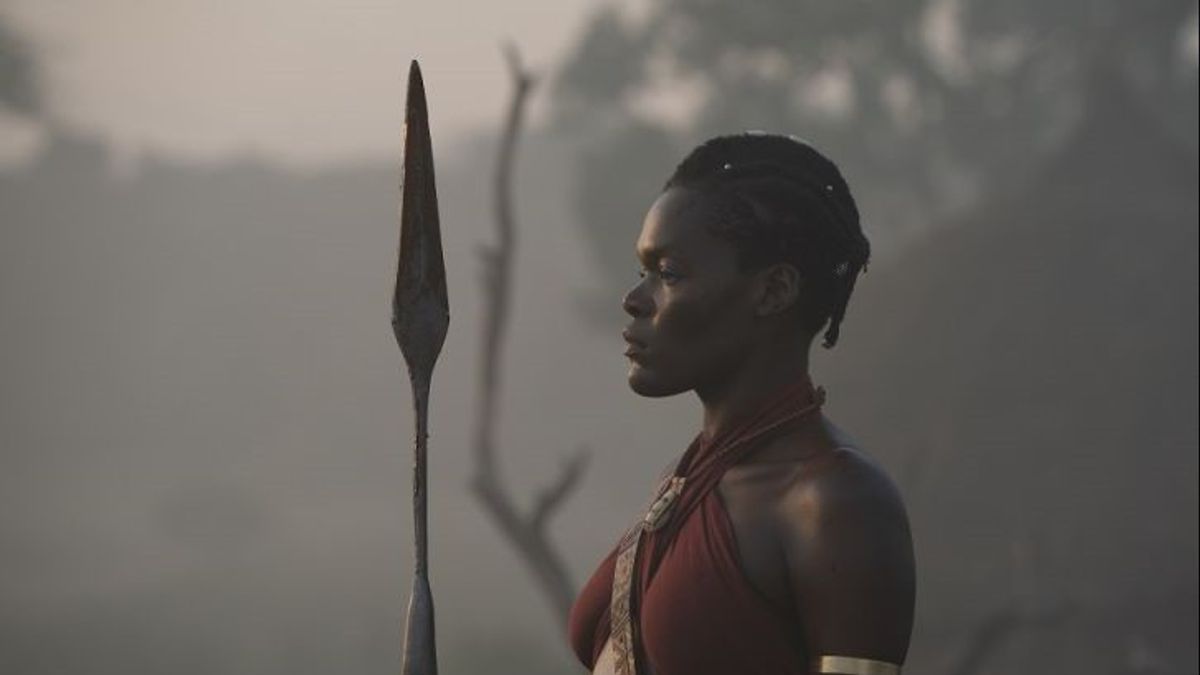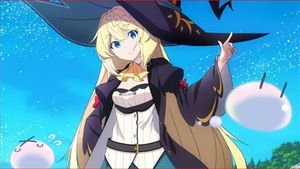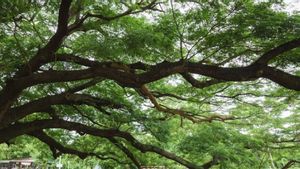JAKARTA - The Woman King, who made its world premiere at the Toronto International Film Festival on September 9, 2022, is now showing in Indonesian cinemas starting today, October 5, 2022. The Woman King is a historical epic film that tells about Agojie, a female soldier unit that protects the Dahomey Kingdom in West Africa during the 17th to 19th centuries.
Taking the background in the 1820s, the film follows the story of General Nanisca (Viola Davis), the leader of a group of fighters who are all women, nicknamed Agojie, freeing the women Dahomey who were kidnapped by slave sellers from the Oyo Empire.
This provoked King Ghezo (John Boyega) from Dahomey to prepare for an all-out war with Oyo. Nanisca began training a new generation of soldiers to join the Agojie to protect the kingdom.
It's no secret that Academy Awards winner Viola Davis (who also plays producer in this film), is a star capable of bringing this epic story to life. Davis is able to dive into the degree of depth and impressive emotional feel as Narisca, the leader of Agojie.
The character he plays is arguably quite complex. He is a leader who is firm, protective, defensive, but also full of love and fragility -- although he did not want to show the "weakness" in front of his soldiers.
Nannica loves the women who join her in the midst of war, loving young women who are just about to start her journey as a freedom fighter -- free from colonialism, slavery, and the trauma and pain they carry with her.
He is a leader who wants to bring fighting spirit to his sister in the region, that everyone has different backgrounds and ideas, but still has the right to live and be equal.
Quoted from ANTARA, Nanisca's tough character had to be pitted with a young Agojie named Nawi (played very stunningly by Thuso Mbedu), who is ambitious and as strong as the general. Nawi is a daughter who was handed over by her father to the kingdom because she refused to marry a rich parent. The relationship between Narisca and Nawi began to be difficult. The two often quarreled when young fighters repeatedly questioned several rules and even rumors enveloped Agojie, including the use of certain magical rituals.
"Being a fighter does not require any magic or rituals, but the ability and enthusiasm to move forward." This quote is arguably one that sounds good for Nawi or the audience. The development of Nawi's character is no less shining with the general.
Taking advantage of a Viola Davis is certainly not an easy job for Mbedu. However, somehow he was able to stick to so many emotional sides of the character he played, and it looked so easy and natural.
As well as other agojies such as Izogie (Lashana Lynch), Amenza (Sheila Atim), to young soldiers Fumbe (Masali Baduza). Not too much if you mention the anambel players in "The Woman King" everything is balanced, and has important moments in character and story development.
Films like The Woman King can be said to be rarely seen in today's era in the midst of other batches of blockbuster films. Director Gina Prince-Bythewood ("The Old Guard"), and scriptwriter Dana left, is capable of packing films with a touch of action and drama that is thrilling for anyone who watches them. The Woman King is an adaptation of a story written by shot with Maria Bello in 2015 after she visited Benin, where the Kingdom of Dahomey was thought to be several centuries ago.
Agojie's origins were not fully documented, but academics suspected they were born out of necessity. The Dahomey kingdom, known for its strategic war and slave attacks, tries to fight back by recruiting and involving women into military ranks. Any unmarried woman can be registered.
The film does not only rely on action and choreography for scenes in war. The intensity is also felt by the audience as the main characters have to face other things outside the battlefield: wounds from the past, trauma, and feelings of guilt that continue to haunt, the demand to always be strong, to vigilance so that they are able to live to save the people who are plagued by injustice and inhumane colonialism.
These emotions make The Woman King different from other conventional films that take the same theme. This film seemed to annoy the audience with the question, "How can we judge someone as strong?". Is it because he is a soldier?; Is it because he puts the interests of the kingdom before himself?; Does it feel like he is still the same and must be echoed.
This film serves as a reminder as well as a voice for women victims of barbaric rape; for those who still feel unable to choose their way of life; for those who want to be free from all injustice and limitations.
Turning to a technical point, it could be said that the crew in it made The Woman King with great respect and sincerity. The cultural aspect of West Africa is presented through the cold hands of cinematographer Polly Morgan (A Quiet Place Part II, Where the Crawdads Sing), designers of production of Akin McKenzie (Wildlife), costume designers Gersha Phillips (Narc, The Mortal Instruments: City of left), and makeup and hairdressers by Babalwa Mtshiselwa and Louisa Anthony.
The beautiful visuals are combined beautifully and well-equipped with the music and the scoring composed by the Terence way ("BlacKlansman", "Da 5 Bloods", "Malcolm X"). These sounds feel so magnificent and often make goosebumps every time they unite with a series of tense scenes in the film.
Overall, The Woman King is not just a matter of war, strength, and women. However, this film digs deeper into the dramatic tap that is already known -- which relies on the general theme of love, brotherhood and community, and clear moralism.
The English, Chinese, Japanese, Arabic, and French versions are automatically generated by the AI. So there may still be inaccuracies in translating, please always see Indonesian as our main language. (system supported by DigitalSiber.id)








